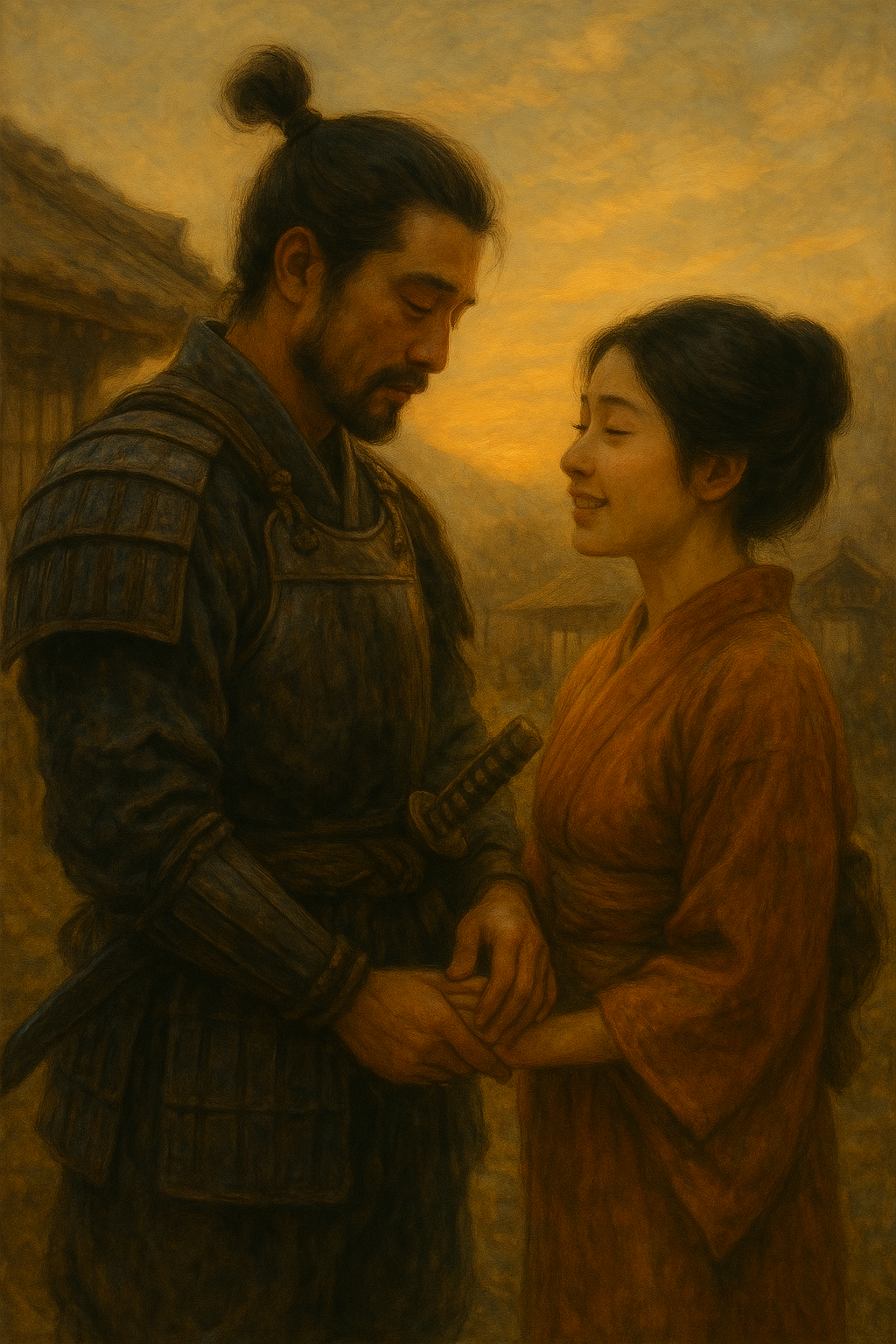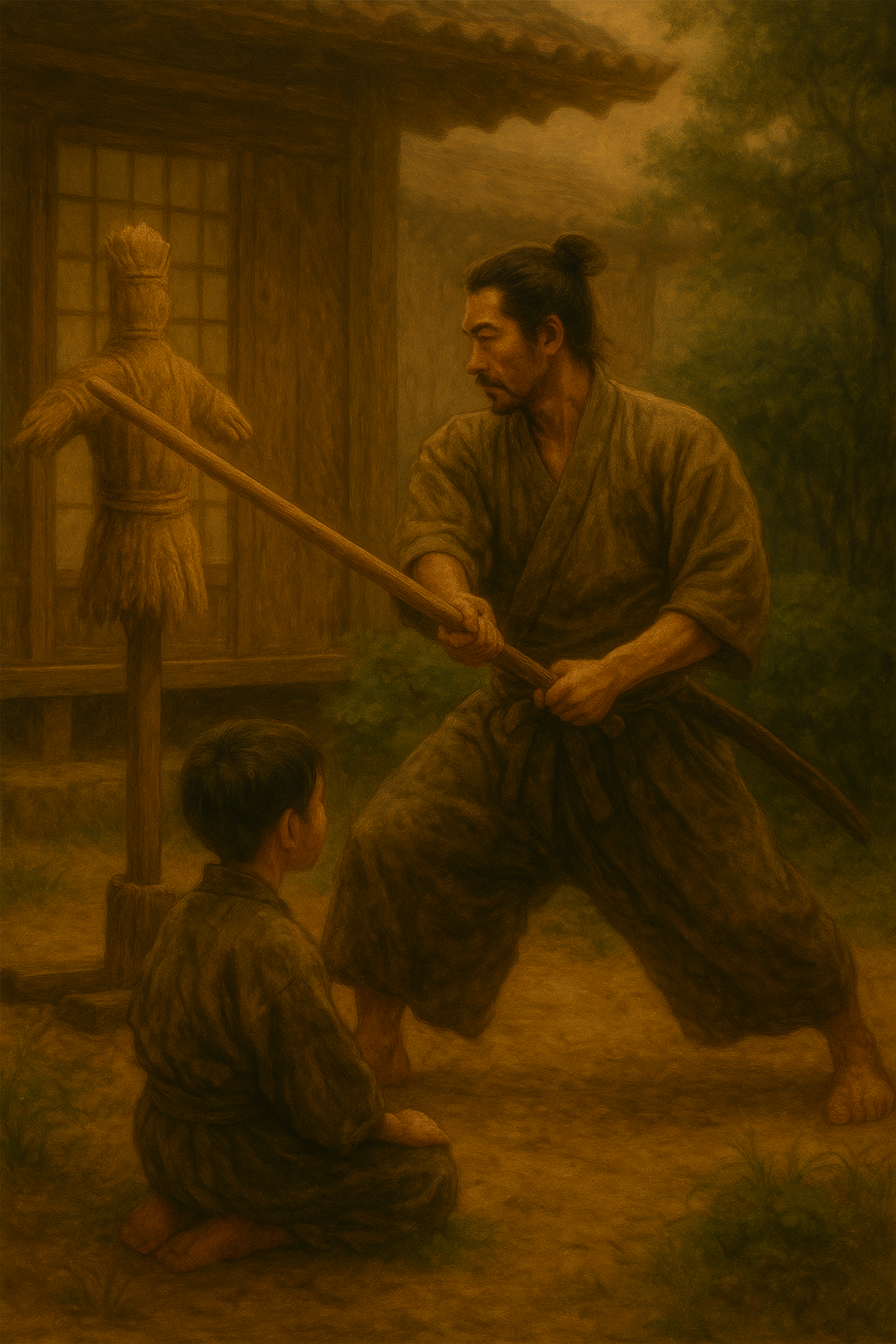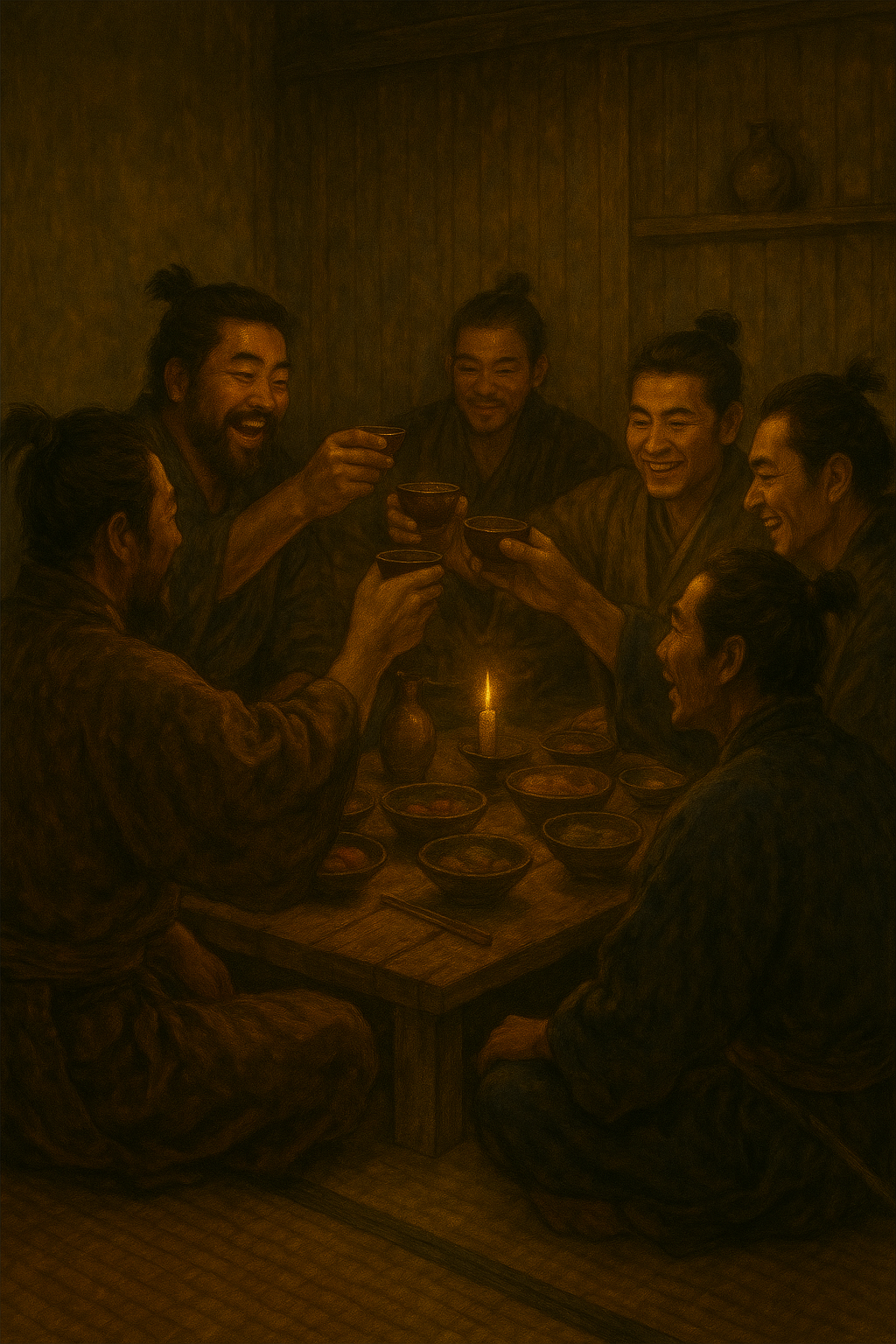October 14, 1678 — Dusk, Kyoto
The lantern burned low, tinting the garden with the color of tea. I stood beneath the maple, the sleeves of my formal kimono cooling in the night air. She arrived as merchants’ daughters do—quiet steps, careful eyes, a chaperone lingering a few paces behind. Between her world and mine lay a gate taller than any temple: class. In our country they call it the fourfold road—warriors, farmers, artisans, merchants—and to cross it is to invite notice.
“My father says the moon is fine tonight,” she said, as if speaking to the wind. Politeness is our first armor. Marriage, in my house, is not made by hearts but by households. Matches are arranged by a go-between, sealed with gifts and family letters, and finally approved by the lord’s officials. Even a minor retainer like me needs permission to marry; without it, a union is as fragile as smoke.
We watched the lantern wick sputter. I remembered my training hall, where we copied poems before we learned to strike. Love here begins with writing: a fan inked with a single verse, a fold of silk paper carrying the scent of clove incense so the reader knows whose hands held it last. A dewdrop means longing. A falling leaf means farewell. Even glancing at the edge of her sleeve, just a moment too long, can speak more loudly than a kiss.
“Will your family approve?” she asked. Her voice was steady, but I heard the rule behind it. A samurai’s wife is chosen for the house, not the heart—modesty, loyalty, silence. If a house lacks a son, it sometimes adopts a husband instead—mukoyōshi—and he takes the wife’s surname to carry the line forward. Honor travels strangely, but it travels.
Not all love fits inside a marriage crest. High-ranking men keep concubines, and the records call it proper so long as the household runs without scandal. Others seek conversation, poetry, and music in licensed quarters—women trained to entertain the mind as much as the ear. People in the capital argue about names—geisha, courtesan—but in truth the border between solace and contract is drawn by money and law, not by feeling.
“Your aunt,” she said, “the one who took vows in Kamakura—was it for love?”
“For duty that would not bend,” I answered. We all know the temple by reputation: a gate where a woman can seek separation when the house refuses mercy. They say that if she endures there long enough, the bonds of marriage loosen like an old knot. In stories the lovers die together—shinjū—but most people live on. Survival is less famous than tragedy.
My palm brushed the grain of the fan I carried. If a husband strays, the world shrugs; if a wife betrays, the law bites. Some edicts allow a husband to kill an adulterer caught in the act; more often, officials mete out the punishment. We grow up hearing such things alongside the classics, as if they were seasons. Love here is not lawless; it bends like bamboo or it breaks.
“Then why write to me?” she asked. Because letter-paper is a country where our houses hold no land. Because words can step where we cannot. I told her how our elders say restraint is a virtue, yet they saved their own letters in cedar boxes, tied with cords, scented to outlive them. We inherit armor and poems in the same breath.
From the street beyond the wall came the faint rattle of a palanquin and the clack of wooden clogs. Somewhere, a bell counted the hour. I thought of petitions and seals, of a go-between whose ledger could turn a glance into a contract, of the lord’s clerk whose brush could deny it with a single stroke. I thought of our adoption laws, our divorce refuges, our rules for sleeves and swords—and how, in their shadow, a person still finds a way to be a person.
We stood there until the lantern finally died. In the darkness, our world felt closer. We said nothing, and in that silence said everything. Tomorrow I would ask leave to submit the proper papers. Tonight, I folded a poem into my sleeve and walked home with the scent of clove to keep me brave.



